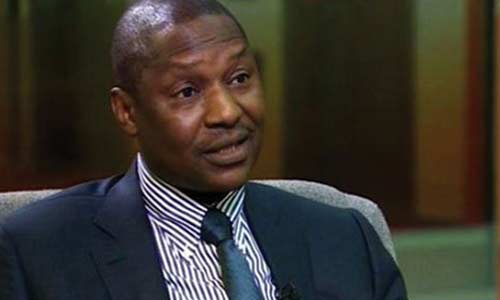EU, ASF Train Lawyers On Legal Aid For Death Row Inmates

The European Union (EU) and the Avocats Sans Frontiers (ASF) France, have commenced training for criminal defence lawyers on increasing legal aid for inmates on death row.
Angela Uzoma-Iwuchukwu, the Country Director of ASF France, also known as Lawyers Without Borders, said the training was to make legal services accessible and affordable to persons on death row in various correctional centres across the country.
“The organisation, in partnership with the EU and others, is training capital defence lawyers who were selected across the country whose capacity are being built to be able to better represent their clients who are facing the death penalty,” she said.
Uzoma-Iwuchukwu noted that selection of the lawyers, who are handling capital defence cases, was done through an open and transparent medium.
She said out of the total number of 114 applications from lawyers across Nigeria, only 15 candidates were selected for the training.
“And we also have gender balance between male and female lawyers,” she added.
She said the two-day training was organised in commemoration of this year’s World Day Against the Death Penalty with the theme: “Death Penalty: A Road Paved With Torture”.
She said in Sub-Saharan Africa, over 6,000 persons are on death row and that Nigeria accounts for the largest number of persons on death row.
“We have over 3,000 persons currently on death row in Nigeria. This is very worrisome.
“And that is why we believe that the World Against the Death Penalty 2022 offers us another opportunity to reflect once again on the propriety or not to continue to retain death penalty in our laws in Nigeria,” she said.
She said though a lot of efforts had been made in the country, a lot needed to be done.
She said even though the constitution gives right to life, it also at the same time, limits it and gives exception for execution.
Uzoma-Iwuchukwu, therefore, called for political will to implement an official moratorium on the death penalty.
She said there should also be a constitutional and legislative reforms.
According to the country director, the organisation was calling for a review in the use of death penalty because it is often used disproportionately against the poor.
“It is the poor people who cannot afford legal services to go through the whole trial and to hire the best defence lawyers to avoid getting on death row.
“Secondly, we say death penalty is too absolute; the execution cannot be reversed and there is always that chance of executing the innocent.
“And as long as this chance exists in all jurisdictions across the world, not just in Nigeria, then we cannot and should not continue to maintain the death penalty.
“Most importantly, studies have shown that the death penalty does not deter the most violent crimes more than any other forms of punishment,” she said.
Uzoma-Iwuchukwu, however, called for a criminal justice system that is proactive, rather than the use of death penalty, which she said is reactive.
“We need a criminal justice system that works. A proactive system that detests crimes and makes it difficult for criminals to successfully carry out criminal activities.
“We need to have a police that is well equipped to be able to carry out functions without resulting to torture to obtain confessional statements,” she said.
Uzoma-Iwuchukwu, who described torture as “inhuman and degrading,” said death penalty is a violation of the right to life.
She said as at October 1, 25 countries who are members of African Union had abolished death penalty, calling on Nigeria to take a cue.
Also speaking, Mr Reuben Aguilera, the Head of Governance, Peace and Migration Section of the EU Delegation to Nigeria, said the EU had a strong and indisputable opposition to the death penalty at all times and in all circumstances.
According to him, capital punishment is inhuman and there is no compelling evidence showing that the death penalty contributes to reducing crime.
“The poor are more exposed to the death penalty because they can often not afford experience criminal defence lawyers.
“The abolition of the death penalty is therefore a key objective in the EU’s human rights policy.
“We work together with partners, member states and civil society organisations to lead efforts toward abolition worldwide.
“It is an honour to hist you here, as you are doing very important work in handling of cases of persons facing the death penalty in Nigeria,” he stated.



